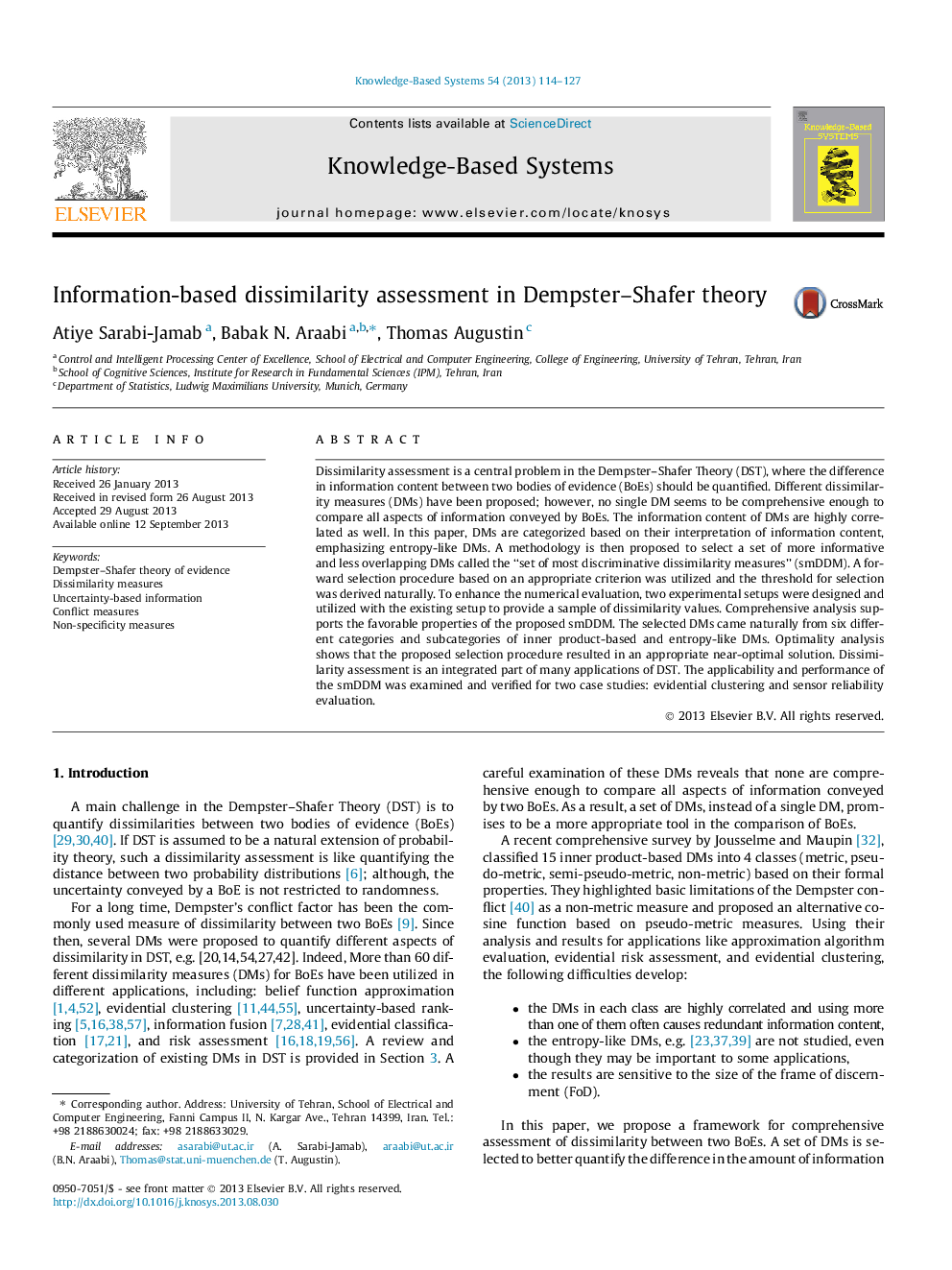| کد مقاله | کد نشریه | سال انتشار | مقاله انگلیسی | نسخه تمام متن |
|---|---|---|---|---|
| 6862710 | 677015 | 2013 | 14 صفحه PDF | دانلود رایگان |
عنوان انگلیسی مقاله ISI
Information-based dissimilarity assessment in Dempster-Shafer theory
ترجمه فارسی عنوان
ارزیابی عدم همبستگی مبتنی بر اطلاعات در نظریه دمپستر-شفر
دانلود مقاله + سفارش ترجمه
دانلود مقاله ISI انگلیسی
رایگان برای ایرانیان
کلمات کلیدی
تئوری شواهد تئاتر دپرسر، اقدامات متفرقه، اطلاعات مبتنی بر عدم اطمینان، اقدامات مقابله، اقدامات غیر اختصاصی،
موضوعات مرتبط
مهندسی و علوم پایه
مهندسی کامپیوتر
هوش مصنوعی
چکیده انگلیسی
Dissimilarity assessment is a central problem in the Dempster-Shafer Theory (DST), where the difference in information content between two bodies of evidence (BoEs) should be quantified. Different dissimilarity measures (DMs) have been proposed; however, no single DM seems to be comprehensive enough to compare all aspects of information conveyed by BoEs. The information content of DMs are highly correlated as well. In this paper, DMs are categorized based on their interpretation of information content, emphasizing entropy-like DMs. A methodology is then proposed to select a set of more informative and less overlapping DMs called the “set of most discriminative dissimilarity measures” (smDDM). A forward selection procedure based on an appropriate criterion was utilized and the threshold for selection was derived naturally. To enhance the numerical evaluation, two experimental setups were designed and utilized with the existing setup to provide a sample of dissimilarity values. Comprehensive analysis supports the favorable properties of the proposed smDDM. The selected DMs came naturally from six different categories and subcategories of inner product-based and entropy-like DMs. Optimality analysis shows that the proposed selection procedure resulted in an appropriate near-optimal solution. Dissimilarity assessment is an integrated part of many applications of DST. The applicability and performance of the smDDM was examined and verified for two case studies: evidential clustering and sensor reliability evaluation.
ناشر
Database: Elsevier - ScienceDirect (ساینس دایرکت)
Journal: Knowledge-Based Systems - Volume 54, December 2013, Pages 114-127
Journal: Knowledge-Based Systems - Volume 54, December 2013, Pages 114-127
نویسندگان
Atiye Sarabi-Jamab, Babak N. Araabi, Thomas Augustin,
